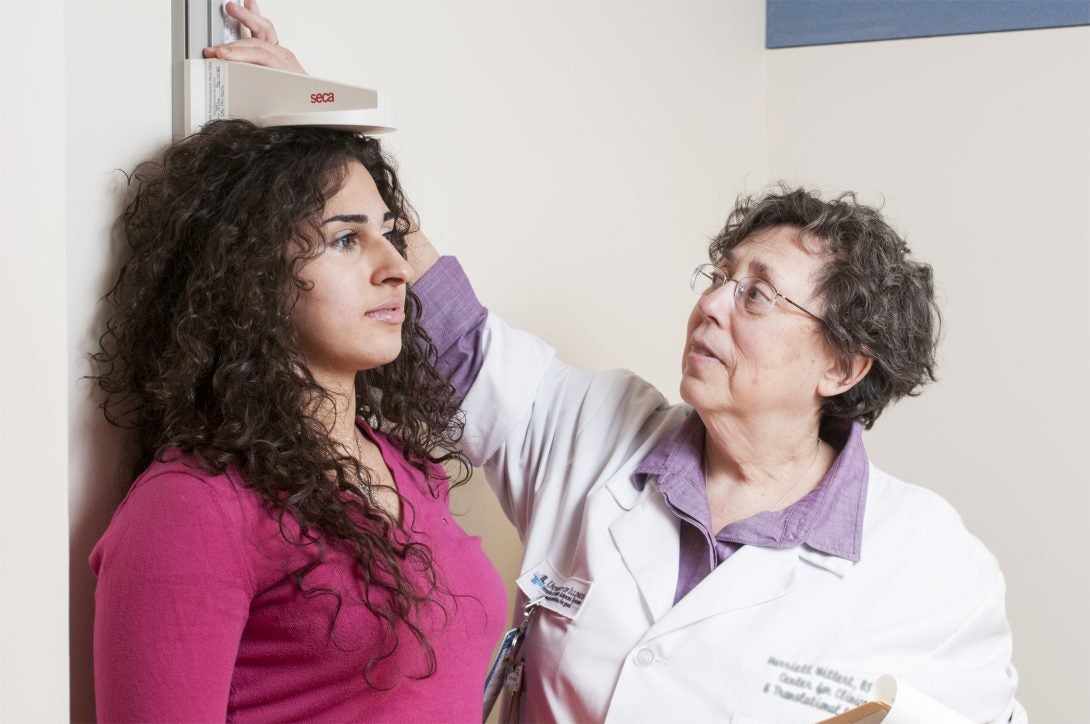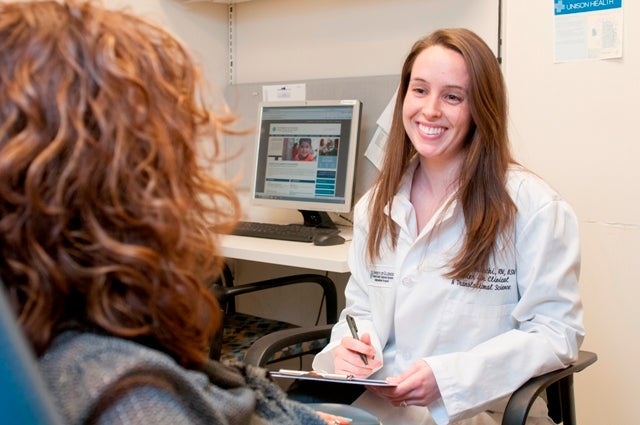Research Volunteer FAQs
Introduction
Our FAQS address:
The Benefits of Participating in Research
Understanding Research
Research Rules & Participant Rights
How to Get Involved
Participating in Research

Why should I be part of a health research study?
Different people have different reasons for participating in research. Healthy people often say they want to help others and contribute to moving science forward. Getting involved in research is a great way to help prevent and treat the diseases that someone you know may have. People with a disease or medical condition participate to help others, too, but can also benefit from receiving a new treatment or the additional care and attention from clinical trial staff.
In the past, some groups of people were not well represented in research. Because of this, some treatments do not work as well in these groups. Today’s researchers want to make sure that treatments and cures are designed for everyone’s unique needs. Participating in research is an opportunity to have your voice heard.
Whatever your reason for participating, you will help researchers better understand diseases. Research helps:
- make health differences smaller between groups of people
- improve the medical system and how things work
- change policies related to health
Health research is one area where we can work together to create opportunities for everyone to lead a healthier life, no matter who we are, where we live or how much money we make.
How does health research make a difference?
Watch this video to see how your involvement in research helps society.
Understanding Research

What is health research?
The purpose of health research (also called medical research) is to learn how our bodies work, why we get sick, and what we can do to get and stay well.
Health research studies are designed to give research scientists information on health or disease. Each study tries to answer specific questions with the goal of improving our individual and community wellbeing.
The video below from the U.S. Department of Health and Human Services gives more information on what health research is and why it is important.
What is Research Part 2

What are the different types of health research?
There are several types of health research. Some studies are done to learn what causes disease or unhealthy behaviors or how to avoid getting sick; others are done to improve how we treat disease. Some studies are as simple as completing a survey; others require you to take a medication or go to multiple clinic appointments. Most studies will fall into one of the categories below:
Observational studies follow the same group of people over time to find out what happens to their health. These studies may help find new ideas for clinical trials.
Epidemiological studies look for patterns of diseases in large groups of people. For example, doctors do epidemiologic studies to look at what kinds of flu outbreaks have occurred in the world. They then use this information to decide what to put in that year’s flu vaccine.
Intervention studies look at ways to change behaviors that affect health. One example would be a study of how increased exercise affects weight and diabetes or heart disease.
Prevention studies look for ways to keep people from getting sick. These studies often involve people who are at risk for a particular disease. If the prevention method is a drug or vaccine, prevention studies are clinical trials (see below). If the prevention method is a change in behavior, they are intervention studies.
The above studies often support social and behavioral health research. To learn more about how this differs from clinical trials, watch the video below from the U.S. Department of Health and Human Services.
Clinical trials are conducted to learn the best ways to treat or prevent disease. This kind of study tests a new drug, vaccine, medical device or form of therapy. Clinical trials begin only after results from laboratory and animal studies show that the new treatment is safe to test and likely to work in people. Volunteers in clinical trials are closely monitored to look for both the expected effects of the investigational treatment as well as any side effects.
Clinical trials are done in stages, which are called phases (1-4). If you are thinking about volunteering for a clinical trial, the research team should tell you which phase of testing the drug or device is in.
For more information on clinical trials, trial phases and how these studies are designed, watch the video from the U.S. Department of Health and Human Services.
Research Rules & Participant Rights

How are people chosen for studies?
Each health study looks to answer a specific question. Researchers must make sure they choose the right people to answer that question. Healthy volunteers- sometimes referred to as “healthy controls”- are just as important as people with medical conditions. In addition to the disease or condition being examined, there are certain factors that can make you a good or poor match for a study.
Inclusion criteria is a list of things that can match a person to a study. Criteria can include a certain age range, a specific health issue or belonging to a group the researchers want to study, such as women or children.
Sometimes a person meets the inclusion criteria but has a health issue or limitation that could confuse the research findings or otherwise affect the study in a negative way, like taking a certain medication or not being able to make all the study appointments. This exclusion criteria is a list of things that keep a person from being the right match for a study.
What information do researchers collect from study participants?
Every study is a little different. Researchers might collect your medical information (such as height and weight) or samples of blood, saliva or body tissue. Medical information and samples are kept in safe places called bio-repositories or data banks. There are no names included, so your information stays private. Sometimes, other researchers are allowed to use this information for other studies. If your information could be shared with another study, your research team should tell you what will be kept confidential, what will be shared, and how it will be shared.
The way researchers collect information from participants is also different for every study. Sometimes researchers collect information before and after the treatment or activity. Other times they collect information at many points during the study. Whenever researchers collect information, there are strict rules they must follow. The research team is expected to provide detailed information to participants about the information they will collect and how and when it will be collected.
How can I be sure that the research study is safe?
Researchers conducting studies within an institution must share their research plans with an Institutional Review Board, or IRB. The IRB is a group of people that review and approve study plans. They make sure the plan is honest, participants will be treated well, and that people can fully understand the study when they agree to be in it.
The IRB also checks that researchers follow the approved plan, reviews any study changes, and makes sure any pain or other unpleasant parts of the study are as little as possible. This means that participants are given all the information they need in order to understand the risks of participating in the study, if any.
Rules & Rights Part 2

Do people get paid for research?
Participants do sometimes get a little money or other compensation- like a gift card- for their time or travel. Usually it is not a lot.
Do I have to be part of the research?
No. Your participation is completely your choice. Participants who have agreed to participate in a study can also withdraw any time.
Also, if you do not want to be part of a study, it will not change the health care your doctor gives you in the future or your relationship to the institution conducting the study.
What else should I ask the study team?
Since each study is a little different, it is important for participants to ask their study team about what exactly they are agreeing to do.
Examples of these questions are:
- Are there any study medications involved?
- How long does the study last?
- Will I get paid for my time, especially if I have to take time off of work, or get childcare?
- Are there any direct benefits for me?
- Will this impact my insurance?
- When the study is done, will I get information so I know what happened in the study?
Questions for a research team
If you qualify for a research study, this video provides suggestions on questions you might want to ask the study team.
Get Involved

How do I participate?
If you are ready to join the UI Health Research Registry, you can create a registry profile for you or a loved one.
You might also want to visit national registry websites, like ResearchMatch.org, to learn about studies outside of Illinois.
If you are interested in studies on a particular condition, have more questions or are unsure what studies might be right for you, talk to your doctor or a community health worker about ways you can participate.
What if I am acting on behalf of a child, elderly parent or other loved one?
People can sign up children or adults who may not be able to make their own healthcare decisions for research studies. However, you do need to be a parent, legal guardian or have the authority to make healthcare decisions for the person you wish to enroll.
What if I have more questions?
We’re here to help! Feel free to contact our friendly staff to learn more about taking part in health research at healthresearch@uic.edu.